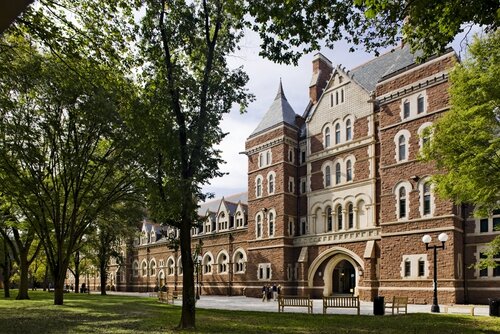Questioning the Value of College

1) Personal finances. Until quite recently, one of the broadest assumptions about parenting in the U.S. was that, almost without exception, children should go to college, primarily because of the “income delta.” I.e., their income stream over the course of their lifetimes has historically been significantly higher than that of their high school diploma-only counterparts. Now, the rising tuitions and other costs, exacerbated by the student loan debt burden that many graduates carry with them through the bulk of their lives, has largely destroyed this economic model.
2) Politics. Conservatives find their viewpoints underrepresented vis-à-vis liberals among students, and more importantly, professors. As a result, many modern-day Republican families find the entire college experience objectionable. This position is reinforced by right-wing media, an entity that hadn’t fully taken form and penetrated our society so deeply until the last decade or so.
One thing that never seems to be discussed in conversations like these are the intangibles, issues that are not directly related to finance or politics. It could be argued that college graduates enjoy richer lives, in a broad sense of that word, and that this should count for plenty. They are more likely to enjoy reading and museums, to travel outside the U.S., to learning foreign languages, and to take pleasure from intellectual pursuits like astrophysics and philosophy.
We need to consider the factors that affect enjoying their careers. It makes sense that teachers and doctors take a higher level of reward from their careers than auto workers or employees in the retail industries.
Of course, this is a truly subjective matter, and perhaps that’s why it’s avoided by podcasters. But it’s a shame that we have learned so little from Socrates (“the unexamined life”), and the words of Confucius, Gandhi, Marcus Aurelius, and the thousands of others who came before us, each of whom sought to teach us the value of learning, wisdom, and the pursuit of virtue.
If we have only one shot at life, shouldn’t it be our best one?


To the writer:
Here we go again with this, “my opinion must include all” shtick.
What you are putting forth is your opinion — only.
It may or may not be factually true, but that’s not the point.
The point is — the last time I checked: it doesn’t take a clooege degree to make a conscience decision to go to college in order to read the authors listed — that still is free.
But it does require a conscience decision to “take on” your “underrepresented bull… opinion just above.
If one wants to feel like he or she is being “underrepresented” — there are two ways to go.
1.) end up being a complaining “undrerepresented member of the conservative sheep herd, or
2.) got off your lasy ass and read.